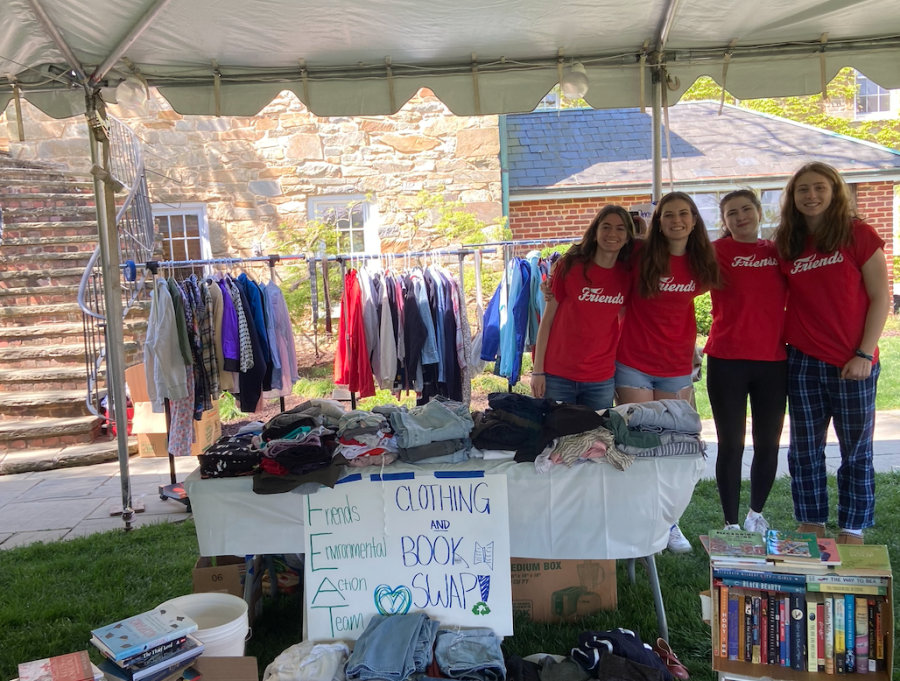Friends Environmental Action Team Updates Service Requirements
Committed to increasing awareness of climate issues, FEAT organized a clothing swap for all three divisions on Founder’s Day. Photo: Elson Bankoff ’23.
In March, the Friends Environmental Action Team (FEAT) pushed the Sidwell administration to include environmental service in the 60-hour graduation requirement. This service requirement must “involve direct and active engagement with people in the community,” according to Sidwell’s website.
Service hours must fit under one of three categories: community service, service learning or activism. Service has generally been focused on person-to-person interactions, particularly with people in underserved communities. Now, due to FEAT’s action, environmental service is included among the different types of approved service.
FEAT is a club dedicated to promoting environmentalism at Sidwell.
“All of FEAT’s work is focused on strengthening principles of environmental justice, conservation and education in the Sidwell community, the local DMV community and the world,” senior and FEAT head Kenji Ishi wrote in an email.
FEAT has organized clothing and book drives, as well as trash pickups. The club has worked to create and increase awareness of climate issues all throughout the school, even asking students to participate in a global climate strike this past March.
Expanding service hours to include environmental service had long been a goal of the club.
“The idea of environmental service being included as service credit came about when several students became interested in pursuing environmental restoration projects (such as trash cleanups) but were frustrated to learn that their work did not count as acceptable service credit due to restrictions in the outdated Sidwell Friends Handbook,” Ishi explained.
Since the issue came to its attention, FEAT has been dedicated to making environmental projects count for service.
During weekly meetings, club members consulted with each other and administrators before eventually deciding on a plan of action.
A group of students selected by FEAT — composed of Ishi, sophomore Isabel Limao, freshman Eyob Sisay and junior Carissa Qin — worked on a proposal to alter the service requirements, which they later presented to the faculty heads. The group was successful in convincing the administration to change the service requirements to include certain types of environmental action.
Ishi found that the presentation sparked a larger discussion about how outdated the Community Service section of the Handbook is.
Beyond this change, the club has other actions planned both within and outside the school community.
“FEAT is constantly working with the administration regarding environmentally-related plans, and we hope to maintain this collaboration with them for all future environmental ideas,” Ishi wrote.
FEAT also collaborates with other clubs in the school frequently — earlier this year, it held a joint meeting with the Black Student Union to discuss the effects of climate change and the environment on the Black community.
FEAT is also part of the Student Environmentalism and Sustainability Network (SEASN), a group of similar organizations at schools across the globe. Through this network, FEAT contributes to the production of Ecosystemic, a magazine dedicated to climate issues. SEASN enables other environmentalist clubs to pool their resources and have an even larger impact.
In preparation for her proposal to the administration, sophomore Isabel Limao said that she met with Center for Ethical Leadership Coordinator Alex McCoy, researched different organizations to partner with and then drafted the proposal with other students, which explored why environmental service work is critical to Sidwell’s Quaker mission.
“I was nervous at first, but I felt very lucky to have the opportunity to make our case in front of the administration,” said Limao. “They were very supportive of making the changes we proposed,” she concluded.













































